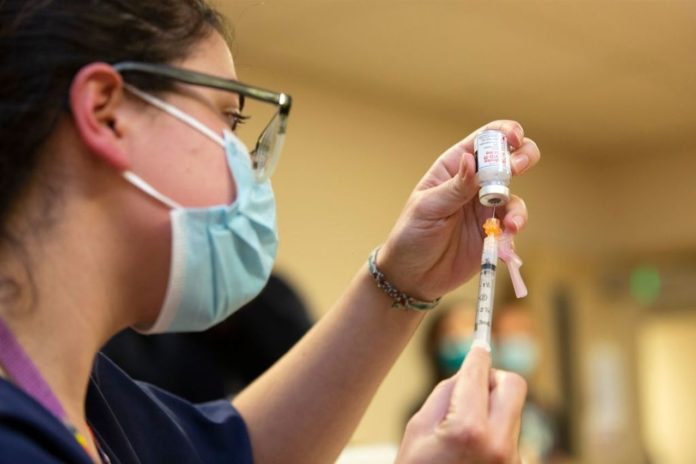Throughout the Coronavirus pandemic, there has been much uncertainty regarding the duration of immunity following infection with SARS-CoV-2 by an unvaccinated person.
Now, a team of experts led by Yale School of Public Health and the University of North Carolina at Charlotte has discovered an explanation: Strong protection following natural infection is short-lived.
West has illusions: Taliban cannot be allies
“Reinfection can reasonably happen in three months or less,” said Jeffrey Townsend, the study’s lead author.
“Therefore, those who have been naturally infected should get vaccinated. Previous infection alone can offer very little long-term protection against subsequent infections.”
The findings, published in the journal The Lancet Microbe, is the first to assess the risk of reinfection following natural SARS-COV-2 and without vaccination.
Does an ice bath really improve muscle recovery?
The researchers examined already known reinfection cases and immunological data from the close viral relatives of SARS-CoV-2 that cause “common colds,” along with immunological data from SARS-CoV-1 and Middle East Respiratory Syndrome. The team was able to model the risk of COVID-19 reinfection over time using evolutionary concepts.
Reinfections are possible and have occurred even immediately after recovery, according to the researchers. And they will become more prevalent as immunity deteriorates and more SARS-CoV-2 mutations emerge.
“We tend to think about immunity as being immune or not immune. Our study cautions that we instead should be more focused on the risk of reinfection through time,” said Alex Dornburg, the co-author of the study.
This new drug combination effectively fights against COVID infection
“As new variants arise, previous immune responses become less effective at combating the virus. Those who were naturally infected early in the pandemic are increasingly likely to become reinfected in the near future.”
The team’s data-driven model finds striking parallels between the reinfection risks of SARS-CoV-2 and endemic coronaviruses over time.
“Just like common colds, from one year to the next you may get reinfected with the same virus,” Townsend said. “The difference is that, during its emergence in this pandemic, COVID-19 has proven to be much more deadly.”
A new way to detect the risk of psychotic illnesses in children early
A feature of the modern world, Townsend added, will be the evolution of new risks to human health. Historically, evolutionary biology — which provides the theoretical underpinnings for these investigations — has been seen as a historical discipline.
“However, our findings underscore its important role in informing decision-making, and provide a crucial steppingstone toward robust knowledge of our prospects of resistance to SARS-CoV-2 reinfection,” he said.
You were reading: For unvaccinated, reinfection by COVID-19 is likely, says study
Image Credit: Getty
